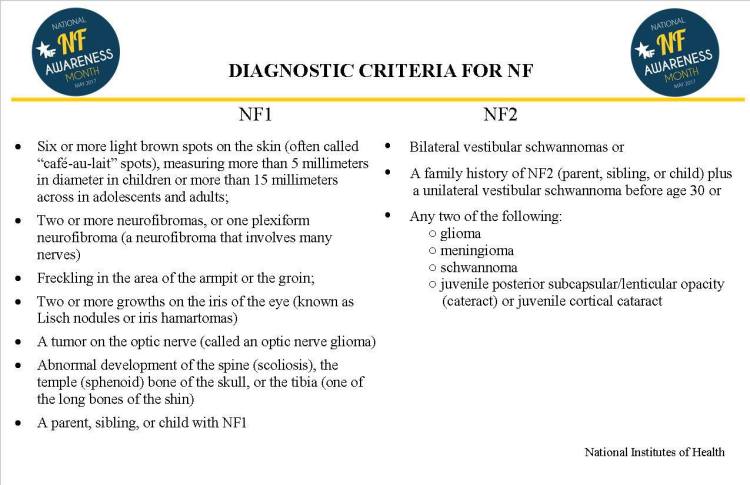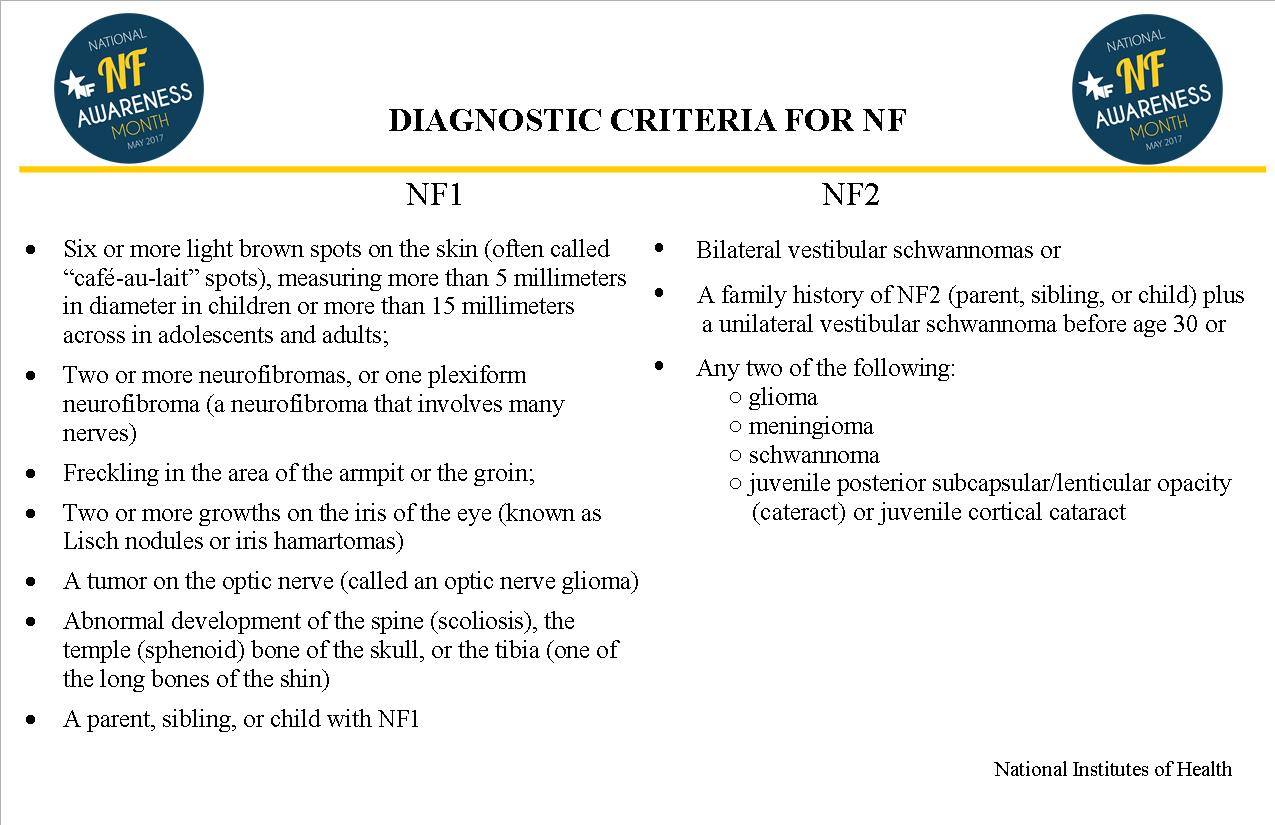Neurofibromatosis is the most common genetic disorder, affecting me and approximately 1 in 2,500-3,000, yet most people (including some medical doctors!) do not know about it. There is currently no cure. Research is needed, (and because of neoliberalism,) research really, really depends on donations.
Neurofibromatosis affects the entire body.
Some symptoms include:

People can have Neurofibromatosis and basically never know they have it or never have any problems directly related to it.
Or, people can have much more serious cases, like me or Reggie W. Bibbs.
To summarize it very, very briefly because of Neurofibromatosis I have migraines, irregular heart rate, Optic nerve glioma, hypogonadism, brittle bones, pseudarthrosis, osteoporosis, excessive dry eye, and many other things. As I get order, I have more and more neurofibromas all over my skin.
For all of these problems, I currently take thirteen medications! All of these because of Neurofibromatosis.
I have also had brain surgery, heart/lung/chest surgery, pelvis surgery, and finger surgery. In less than a week, I will be having surgery #5 to remove another tumor on my finger. All of these, also, because of Neurofibromatosis.
Neurofibromatosis, in sum, causes tumors to grow, causes bones to develop abnormally, causes the body to not produce chemicals it ordinarily would, causes pain (lots of pain – there have been overall, very few days in my thirty years of life that have been pain-free), and, especially in my case, lots of random problems.
Supporting research for Neurofibromatosis is important for many reasons, including that you know people who have it! And because research on Neurofibromatosis ultimately benefits every body – people with worse cases of Neurofibromatosis have many “normal” medical problems just earlier and in much greater frequency and with greater severity.
Neurofibromatosis can also cause learning disabilities, including dyslexia, which have effected me.
One of my biggest frustrations is not so much the pain, I am used to that, but the societal assumption of ableness. Able-bodiedness is every where. People assume that if you “look” healthy you do not have any limitations or disabilities. On a similar note, the more I learn about life and people, the more I realize that, like gender and sex and sexuality, ableism exists on a spectrum – lots of people have examples of how they too are not simply able-bodied. Another frustration, of course, because we live in the United States, is insurance.
SO, research is needed, lots of it! If you would like to donate a few extra dollars, I’d greatly appreciate it, and I’d suggest donating to the Texas Neurofibromatosis Foundation. I will soon be writing an academic history of Neurofibromatosis for solicited publication, so stay tuned!
Dr. Andrew Joseph Pegoda
See also:
